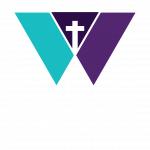'In all your ways acknowledge Him, and He shall direct your paths' (Proverbs 3:6).
We assemble regularly for worship, prayer, teaching and fellowship (Hebrews 10:25). Our Elders take full responsibility before the Lord for the spiritual wellbeing of members, as well as all meetings and activities held within the chapel.
The Gospel (‘good news’), is presented faithfully under the guidance of the Holy Spirit (John 16:13-14; 1 Corinthians 2:11-12), with the opportunity for the exercising of all true spiritual gifts, subject to the Lordship of Christ and for the benefit of all believers (Ephesians 4:11-12; 1 Corinthians 12:24-27).
Our main practices include, but are not limited to:
The Lord's Supper
This is the sharing of bread and wine as instituted by the Lord Jesus, also known as the Breaking of Bread. We celebrate this weekly in an unstructured Worship Service. The bread and wine are symbols of Christ’s body and blood – a way for us to remember the sacrificial work of the Cross – and do not take on any other form during the service. However, while the service is open to all to attend, it is important to remember that the bread and wine should only be taken by those who have confessed Christ as their saviour (Matthew 26:26-30; Acts 2:42; 1 Corinthians 11:27-29).
Believer’s Baptism
We observe the practice of baptism by full immersion in water following a personal confession of faith in Jesus Christ. This immersion is a symbol of the believer’s death, burial, resurrection, and new life in Christ (Matthew 3:13-17; Matthew 28-18-20; Acts 2:37-38; Romans 6:3-6).
Fellowship
Because Christians are all members of one body in Christ (Romans 12:4-5), we seek the greatest possible fellowship with like-minded churches and believers elsewhere. This is achieved through prayer and, where possible, suitable meetings and activities.
Elders Who Care and Manage
We do not employ the services of a pastor, minister, or other salaried worker. Pastoral care and teaching ministries are the responsibility of the Elders, while administration and maintenance are the responsibility of the Deacons. The effective management of the Assembly is coordinated between the Elders and Deacons.
The roles of Elders and Deacons are voluntary and are appointments are made according to Biblical principles (Acts 15:2; 1 Timothy 3:1-13; Titus 1:5-9; 1 Peter 5:1-4). These are the only formal roles we maintain, in accordance with the view that all believers are members of a greater spiritual priesthood under Christ (Hebrews 4:14-16; 1 Peter 2:4-5,9; Revelation 1:6).

